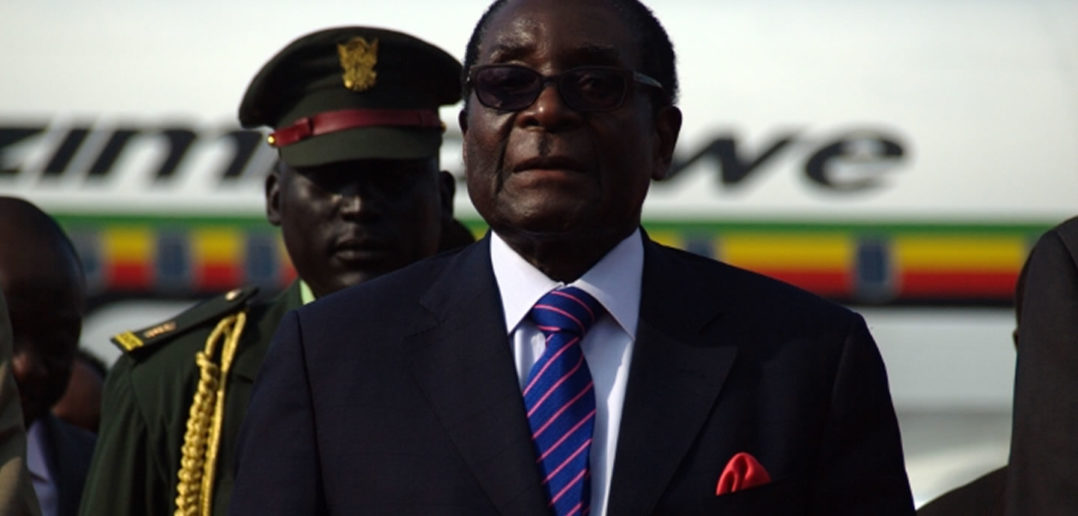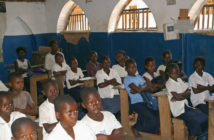Zimbabweans are understandably ecstatic about the political changes taking place in their country. On 24 November, Zimbabwe marked the unexpected end of Robert Mugabe’s 37-year reign by inaugurating Emmerson Mnangagwa president. On Monday, the former vice president and newly-christened leader put an emphatic end to the Mugabe era by dissolving his toppled mentor’s cabinet. Celebratory residents in Harare are hyping the impoverished country’s “huge economic potential” – but is their watershed moment actually a decade behind schedule?
The euphoria in the streets and in Zimbabwe’s Parliament can’t mask an inescapable truth – were it not for the brutal electoral violence perpetrated by Mugabe and Mnangagwa, facilitated by the meek response of the South African Development Community (SADC), Zimbabwe’s re-emergence could have come nine years ago. That, in turn, could have spared Zimbabweans a decade of economic deprivation.
Such a turn of events is not difficult to imagine. Morgan Tsvangirai and the opposition Movement for Democratic Change (MDC) were well on their way to unseating Mugabe in Zimbabwe’s 2008 presidential elections. Instead, Mugabe’s regime nullified the popular momentum in a campaign barely surpassed in violence by the Matabeleland massacres nearly two decades earlier. More than 100 people were reportedly killed, at least 200 were abducted or reported missing, and hundreds were jailed on questionable charges.
The violence was widespread and indiscriminate: nationwide, tens of thousands of people were forced to flee their homes. MDC campaigners and activists were forced into either detention or hiding, as the ruling Zanu-PF brutalised their way to an electoral win. Mugabe and his allies – most importantly Mnangagwa and future coup leader General Constantino Chiwenga – made no effort to hide what they were doing. Taking on the rhetoric of the liberation war, the old despot angrily declared that “only God can remove me.” In retrospect, Mugabe may need to amend his statement to include Chiwenga.
“Uncle Bob” may be gone, but the country has paid a steep price for Mnangagwa and Chiwenga’s efforts to keep Mugabe in office. A year after the 2008 “war” of an election, Zimbabwe was forced to abandon its own currency because of hyperinflation that ran to 500 billion percent. Since 2000, the size of the economy has shrunk by half. Unemployment sits at 95 percent. Mnangagwa’s ascension may help bring Zimbabwe out of its international isolation, but the road back to solvency will be long, slow, and painful.
Zimbabwe’s dismal economic circumstances, coupled with the stark reality of tanks in the streets being required to finally force Mugabe from office, should come as a lesson to the SADC regional bloc as well as the African Union. Mugabe’s unrelenting grip on the presidency since Zimbabwe’s independence ensured the country would be unable to move forward democratically without him. By refusing to take a stronger stand against Mugabe and the ZANU-PF nine years ago, the SADC virtually guaranteed future instability. The only saving grace? Unlike in 2008, violence was thankfully averted.
The SADC’s credibility has so far been deeply compromised due to its inability to live up to its professed goals of “poverty eradication and regional integration.” The lessons from Zimbabwe should not go to waste, however, and the SADC still has time to stop another one of its members from tumbling into civil war: the Democratic Republic of Congo (DRC). Despite his second term coming to a close in 2016, President Joseph Kabila has so far refused to step down from office, relying instead on a dubious reinterpretation of the constitution to justify his remaining in the top job. Elections to choose his successor were supposed to occur by the end of 2017, but the Independent National Electoral Commission has since pushed this back by another 12 months, to 23 December 2018.
Kabila’s resistance to change is pushing the DRC to the brink: amid surging violence, state authority is breaking down. The whole region seems at risk of sliding into violent conflict. Part of the problem is the Congo’s relative obscurity: in other countries, interminable presidencies have led to international pressure on incumbent governments to step down, such as in Afghanistan or the Ivory Coast. As with Zimbabwe’s Mugabe, Kabila appears able to ignore his own country’s constitution with impunity.
Following in the footsteps of Mugabe and his allies in 2008, Kabila is using the levers of the state to attack his opponents and break up the Congo’s opposition. Key opposition leader Moïse Katumbi has kept out of the country since fleeing last year, after he was the target of a politically motivated trial. In June, Katumbi filed a legal complaint with the UN Human Rights Committee in a bid to secure international protection should he ever return.
In the meantime, Katumbi has kept the heat on Kabila from abroad, while his supporters and other opposition leaders keep up in-country pressure, calling for new efforts to oust the President as recently as last month. “The people are tired,” said opposition member Martin Fayulu as he called for a month-long campaign of civil disobedience, “they want Kabila to go before the end of the year.” As the death toll continues to rise amid ongoing fighting between government troops and militias in the Kasai region, the Congolese people’s patience is surely wearing thin.
Faced with this deteriorating situation, the SADC has mostly tiptoed around the subject. Despite Thabo Mbeki’s call on the body to act, a call that was echoed by Kofi Annan, the SADC has not debated kicking Kabila from its ranks. The most it managed to do was to send former Namibian president Hifikepunye Pohamba as its special envoy for peace talks – and Kabila barred him from entering the country.
Raising the political costs for leaders who seem intent on replicating Mugabe’s example, Kabila included, should be a priority for bodies like the SADC. As Rafi Mhaka put it earlier this summer, “Anything less would mean SADC is standing behind the illegitimate rule of Kabila and don’t support the long-suffering people of the DRC”. If Africa is to avoid further coups and bloodshed down the road, the continent’s presidents must fall into step with the demands of their democracies.




